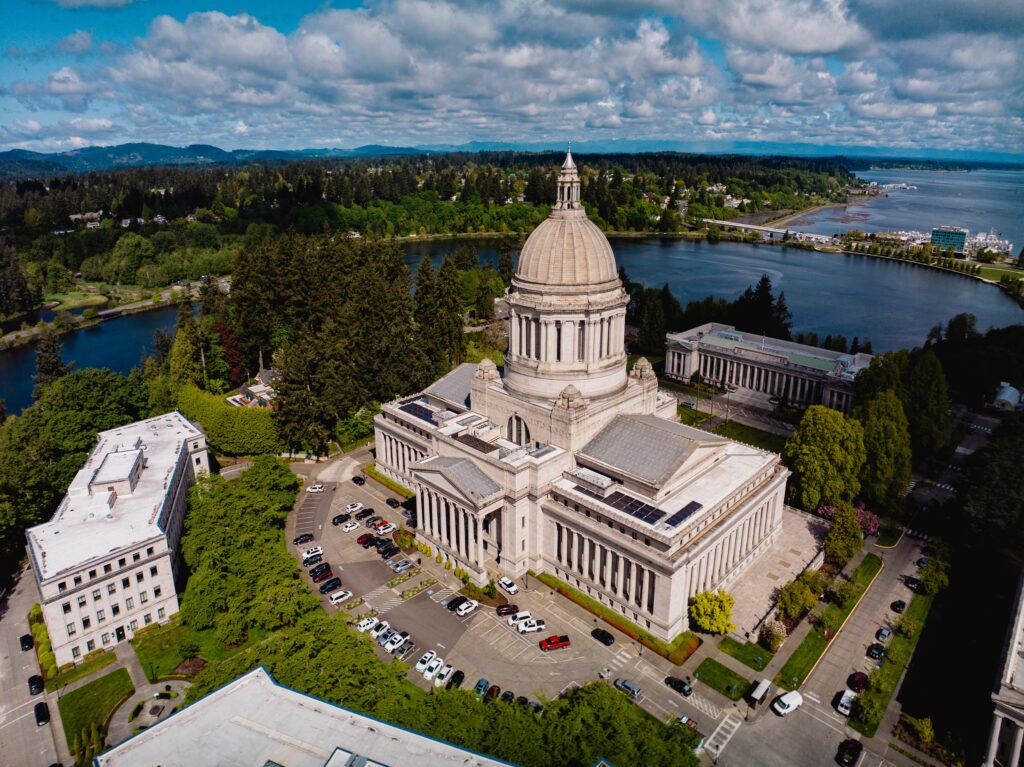By Caitlin Rothermel
This spring’s 2025-2026 session of the Washington state legislature has pushed the envelope in terms of how much state government should spend and how little the public needs to be involved in the process.
The final 1,366-page 2025-2027 proposed operating budget totals $77.9 billion and was released with barely a day to spare on April 26th, with support only from Democratic lawmakers. No public witnesses were called, opportunities for public comment were limited and brief, and there certainly was no time for average voters to reflect on a budget that will affect every aspect of their lives.
The budget would impose the single largest tax hike in state history, representing an 8.2% increase over the prior budget and translating to $12.5 billion in additional state and local taxes over the next four years. Based on quick calculations, the budget is 78% higher than WA state’s corresponding budget from eight years ago. WA’s inflation rate over that same period? About 35%.
If you prefer to look on the bright side, the Democratic majority initially proposed an additional $21 billiontaxes. This was rejected by Governor Bob Ferguson.
The public is largely not on board with these increases. A poll of 800 registered voters, conducted by Napolitan News Service, found that 80% preferred slowing government growth over raising taxes. Just 12% supported increasing both spending and taxation. In a separate poll of 600 residents, conducted by EMC research, 74% said the current legislative majority had no effective plan to solve the state’s most important problems – defined as homelessness, housing affordability, public safety, and education.
Included in the proposed budget are $1.6 billion in property tax hikes, to be obtained through local levies (HB 2049); $2.6 billion in sales tax increases (SB 5814); $5.6 billion in expanded business and occupation taxes(SB 5815); and $680 million in additional capital gains and estate taxes (SB 5813). Dead for the time being are proposed new payroll and intangible wealth taxes.
These increases are substantial enough that even the Seattle Times has editorialized against the budget, calling for Governor Bob Ferguson to veto tax increases that would fall hard on working families.
There is a narrative that the proposed property tax increases are dead, but this is not strictly true. Here is how that story unfolded: The first relevant bill of the session (HB 1334), discussed in the February 2025 issue of The Loop, would have increased the annual cap on property tax from 1% to up to 3%. Briefly – and stress-inducingly – an alternate bill (SB 5798) was introduced that would have removed the 1% cap altogether, with the upper increase limit tied only to inflation. The people wanted none of that, and a record-breaking 43,153 state residents registered against SB-5798.
After this backlash, conventional plans to increase property taxes were shelved in favor of a measure that shifted control to local school districts.
Enter HB 2049. This bill increases the maximum per-pupil levy limit, allowing for greater local revenue generation beyond basic state education funding. Starting in 2026, the per-pupil limit (currently set at $2,500 in a community the size of Vashon) could be raised by $500 plus inflation, with further annual increases through 2030, leading to a fixed per-pupil amount of $5,035 per pupil in 2031, adjusted annually thereafter for inflation.
So in short, if the current budget passes, as a next step, WA state residents will experience a coordinated spate of expanded school board levy requests, requiring only a simple majority to pass.
Senate Republicans, including Minority Leader John Braun, argue that this approach risks repeating the funding inequities that led to the landmark McCleary v. Washington decision. Under McCleary, the state was found to have violated its constitutional duty by relying too heavily on local levies to fund public education, leading to disparities between wealthy and poorer districts.As of this writing, Governor Bob Ferguson has indicated his intent to review the budget line-by-line and share his thoughts in greater detail. This could happen any day. If you would like to share your thoughts with Governor Ferguson, at any level of detail, contact him at https://governor.wa.gov/contacting-governor/contacting-governors-office.

